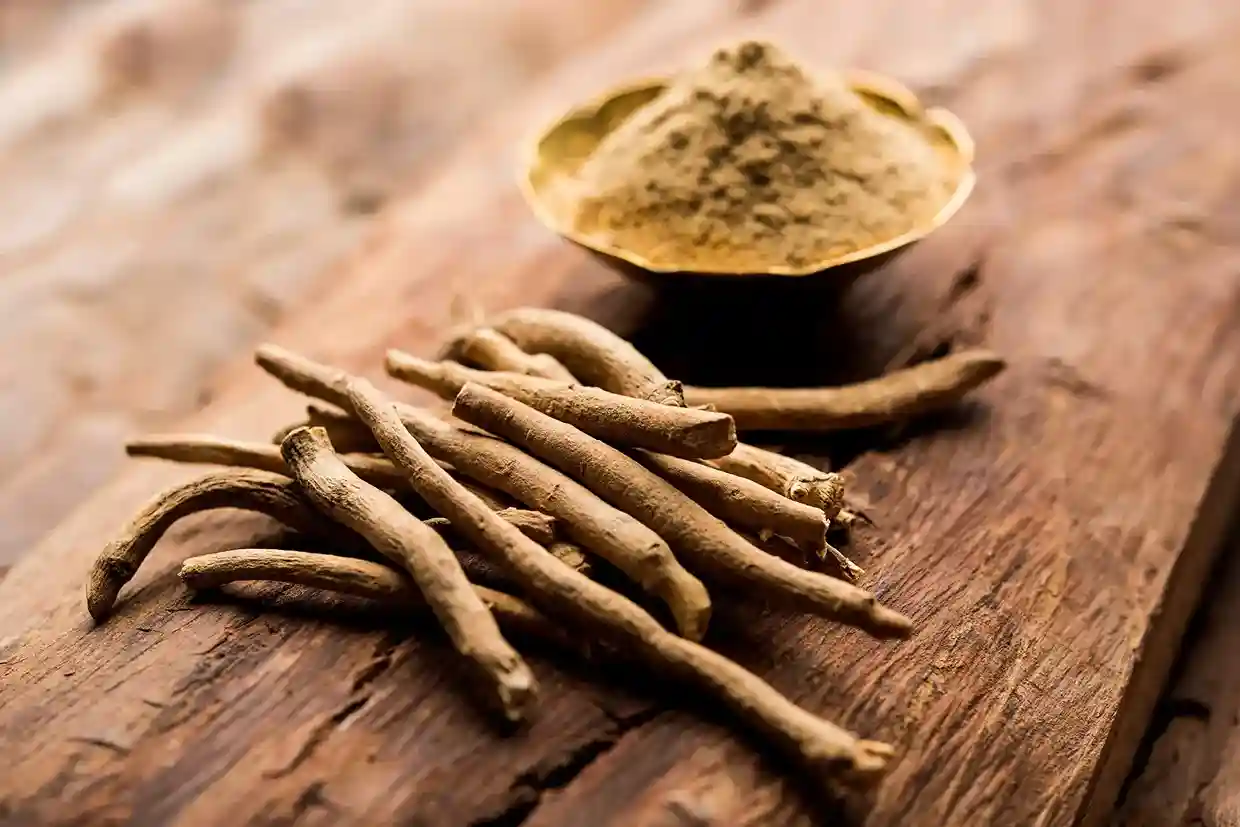At a glanceThe Roots of Ashwagandha's Power: How an ancient medicine became a modern superstar. |
Ancient texts say that the Ashwagandha root possesses the strength of a horse — and for good reason. After all, the literal meaning of the word “Ashwagandha” is “smell of a horse.” But the tender root of the Ashwagandha plant does more than give off an odor similar to that of a stallion.
Native to the wilds of Africa, the Mediterranean, and India, Ashwagandha has logged over 4,000 years of traditional use as a valuable health aid. In the ancient Indian medical system of Ayurveda, Ashwagandha is classified as a rasayana — a “life extender”.
Although the Ashwagandha berry boasts a bright-red color akin to a fresh tomato, you probably won’t find it in food or fruit salad. As appetizing as it may appear, most people enjoy the benefits of Ashwagandha through dietary supplements, especially given that the true power of the plant lies in its root.
Merriam-Webster dictionary defines adaptogen as “a nontoxic substance and especially a plant extract that is held to increase the body's ability to resist the damaging effects of stress and promote or restore normal physiological functioning.”
Simply put, Ashwagandha is an adaptogen — a plant that helps manage stress. However, aside from the stress-related benefits, this versatile root had been prepared traditionally to promote sleep, enhance mental function, increase stamina and endurance, and more.
Ashwagandha As An Adaptogen To Manage Stress & Improve Sleep Quality
Ashwagandha has recently risen to prominence as an herbal way to combat stress and anxiety. And with good reason — modern research has unlocked a bushel-full of data to support the claim.
- A quick Google search yields pages of results regarding clinical studies on Ashwagandha.
- A 2019 clinical study used a highly concentrated Ashwagandha root extract and was designed to study the herb across a variety of dose levels. This is important because it shows at what strength the root delivers its various effects.
- The study administered Ashwagandha extracts at 125 mg and 300 mg or placebo twice daily (250 mg per day, 600 mg per day, or placebo) to 60 healthy men and women for 8 weeks. Stress was measured using a baseline perceived stress scale, or PSS. Other stress-related indicators — including anxiety and sleep quality — were measured using the Hamilton-Anxiety scale (HAM-A) and a seven-point sleep scale, respectively.
- The results saw a significant reduction in PSS scores in participants in both Ashwagandha groups relative to the placebo control group. Furthermore, the participants receiving Ashwagandha experienced significant improvement in sleep quality as well.
- Participants receiving 600 mg per day did better in both areas of study than the 250 mg per day group.
- This ground-breaking study concluded that the Ashwagandha is beneficial in reducing stress and anxiety while promoting more refreshing sleep.
A Supercharged Herb For Energy and Stamina
According to the official website of Chris Kilham, the world-travelling ethnobotanist and Medicine Hunter™, Ashwagandha is an ancient herb that can help enhance energy, endurance, and stamina — which may be counterintuitive to those who rely on the root for help managing stress and promoting sleep.
More study is needed into the biological mechanisms that allow such diverse benefits from one plant, but the current results are extremely promising.
- A 2015 study set out to determine the clinical efficacy of Ashwagandha, with a focus on cardiovascular endurance and physical performance. This double-blind study consisted of 50 healthy athletic men and women between 20 and 45 years old. Participants were assigned at random to receive either 300 mg of KSM-66® — a high concentration full-spectrum root extract of Ashwagandha — twice daily, or placebo for 12 weeks.
- The cardiorespiratory endurance of participants in this study was monitored by measuring oxygen consumption at peak physical exertion levels in a 20 m shuttle run test.
- Oral administration of KSM-66® Ashwagandha led to increased oxygen consumption at peak physical exertion, enhanced cardiorespiratory endurance and quality of life in participants, as compared to the placebo.
- The findings indicated that this unique form of Ashwagandha root improves how well the body takes in and utilizes oxygen in healthy athletic adults.
Memory & Cognitive Support
Aside from managing stress, improving sleep quality, and enhancing energy and stamina, Ashwagandha improves memory and cognitive function as well. And like the other benefits Ashwagandha brings to the table, clinical evidence confirms what ancient tradition learned from trial and error.
- A 2017 randomized placebo-controlled trial examined the efficacy and safety of Ashwagandha root extract in improving memory and cognitive function in 50 adult participants. Each participant was given either two doses of 300 mg Ashwagandha root extract per day or a placebo for 8 weeks.
- At the conclusion of the trial, participants in the Ashwagandha group exhibited significant improvement in both immediate and general memory compared to their placebo counterparts.
- Memory and cognitive function were assessed using the Wechsler Memory Scale III testing for logical memory, verbal paired association, and face recognition — with the Ashwagandha group demonstrating significant improvements across the board.
- Those who were administered Ashwagandha also demonstrated significant improvement in executive function, sustained attention, and information-processing speed according to the clinical trial.
Antioxidative Properties To Support Your Healthy Aging Journey
According to Clinical Interventions In Aging, an international, peer-reviewed journal, “the free radical theory of aging hypothesizes that oxygen-derived free radicals are responsible for the age-related damage at the cellular and tissue levels.” In simple terms, this means that prolonged exposure to free radicals — which are generated by aging, pollution, the foods we eat, and more — could damage your cells and tissue and may expedite the aging process. Fortunately, Ashwagandha has shown in clinical studies to process antioxidative properties.
- According to this overview on Ashwagandha published in the African Journal of Traditional, Complementary and Alternative Medicines, the antioxidant properties in Ashwagandha help protect our bodies against the harmful effects of free radicals. Without antioxidants, these pesky free rogue molecules cause oxidative stress on our cells and tissues. This impacts our energy levels, wrinkles our skin, can lead to joint discomfort, heart and brain concerns, and even effect the normal aging process.
Enlist Ashwagandha For Your Golden Years!
Ashwagandha has been a staple in the ancient Indian medical system of Ayurveda because it was believed to promote sleep, enhance mental function, increase stamina and endurance, and more. However, this legendary herb has now undergone clinical testing that have confirmed the sentiments of ancient medicine. As a result, Ashwagandha is once again seen as a prized herb that brings multiple benefits to the table. And while you’ll be hard- pressed to find this particular bright-red berry in food, dietary supplements are a great way to support your body on your healthy aging journey.
References
https://www.medicinehunter.com/ancient-herb-ashwagandha-gives-boost-modern-world
https://www.merriam-webster.com/dictionary/adaptogen
https://www.ncbi.nlm.nih.gov/pmc/articles/PMC2685276/
https://www.ncbi.nlm.nih.gov/pmc/articles/PMC3252722/
https://www.ncbi.nlm.nih.gov/pmc/articles/PMC4687242/
https://www.ncbi.nlm.nih.gov/pmc/articles/PMC6979308/
https://pubmed.ncbi.nlm.nih.gov/28471731/









